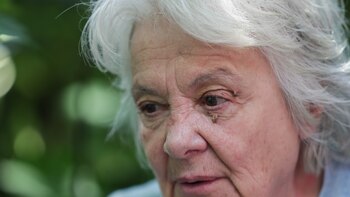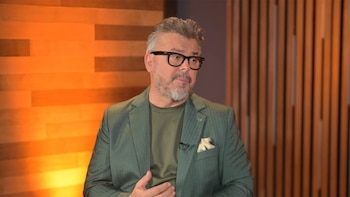German tennis player Boris Becker is on trial from Monday in London for allegedly concealing assets when he declared bankruptcy, the latest turn in the troubled race of the world's number one, trying to avoid jail.
Dressed in a dark coat and a purple scarf, Becker arrived in the morning at the Crown Court in Southwark, in the south of the British capital, accused of hiding his Wimbledon and Australian Open trophies, several properties and some £1.8 million ($2.3 million).
When he filed for bankruptcy in June 2017, his debts were estimated at around £50 million.
The German, winner of six Grand Slam titles, a 1992 Olympic gold in Barcelona (in doubles) and the first racket in the world in 1991, faces a maximum of seven years in prison if convicted.
In the preliminary hearings, Becker was accused of having an apartment in the luxurious London neighborhood of Chelsea and two properties in Germany that were not declared between June and October 2017.
He is also accused of stealing hundreds of thousands of pounds by transferring them to other accounts, including that of his ex-wife Barbara Becker and that of his wife Sharlely Becker, from whom he is separated.
The tennis player would have also hidden shares in the artificial intelligence company Breaking Data Corp and its tennis trophies.
Becker, 54, denies all these charges. And, although he lives in London and his lawyer acknowledges that his English is “very good”, he plans to use an interpreter to testify at the trial, which should last three weeks.
- Vida turbulent -
One of the most troubled personalities in the world of tennis, Becker broke out at the age of 17 in 1985 when he became the youngest individual champion of Wimbledon, whose audience quickly adopted him as their favorite player for his dynamic play and his youthful enthusiasm, which was reflected in his fondness for performing spectacular volleys.
His fierce serve earned him the nickname “Baby Boom Boom” and “Der Bomber”.
A year later, he successfully defended his Wimbledon title, defeating world number one, Ivan Lendl, in the final.
In 1989, he won Wimbledon for the third time and won his first US Open title.
But after reaching number one in the world two years later, it began its decline: prone to emotional outbursts, he frequently lost matches that were within his reach and was fined for breaking his racket, showing a volatile personality that made it difficult for him to stay on top of tennis.
In 1993, he had fiscal problems with the German government and his last Wimbledon final ended in defeat against Pete Sampras in 1995.
He lifted his last Grand Slam title at the 1996 Australian Open before retiring three years later.
He remained in touch with tennis as a television commentator and coached Novak Djokovic from 2013 to 2016, helping the Serbian successfully challenge the dominance of Roger Federer and Rafael Nadal.
But his private life was turbulent, with marital breakups and a strange incident in which he claimed to be the representative for sport, culture and humanitarian affairs of the Central African Republic to the European Union.
His lawyer argued that this granted him diplomatic immunity from accusations of non-payment of new debts, but ended up withdrawing that claim.
In 2002, a court in the German city of Munich sentenced Becker to a suspended sentence of two years in prison and a fine of 300,000 euros ($330,000) for tax evasion of about 1.7 million euros.
SMG/ACC/DR
Últimas Noticias
Debanhi Escobar: they secured the motel where she was found lifeless in a cistern

The oldest person in the world died at the age of 119

Macabre find in CDMX: they left a body bagged and tied in a taxi
The eagles of America will face Manchester City in a duel of legends. Here are the details

Why is it good to bring dogs out to know the world when they are puppies




